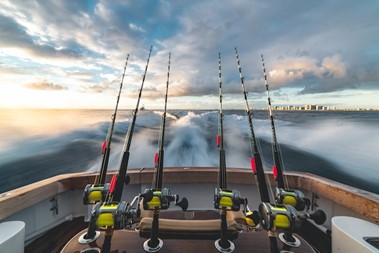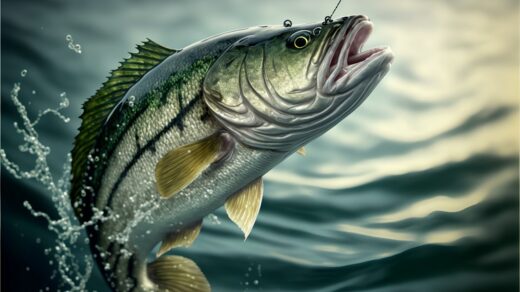David Hebeda, a seasoned fisherman with a special fondness for the elusive and challenging muskie, can’t get enough of Muskie fishing. Muskie fishing, known for its test of patience and skill, is often regarded as the ultimate freshwater fishing challenge. In this blog, David Hebeda will share some key advice that I’ve learned over the years to help you improve your muskie fishing game.
Understand the Muskie
David Hebeda believes the first step in mastering muskie fishing is to understand your target. Muskies, often called the “fish of ten thousand casts,” are apex predators in their ecosystems. They are smart, elusive, and can be quite selective in their feeding habits. Knowing their behavior patterns, preferred habitat, and diet is crucial.
- Timing is Everything
Muskies are most active during certain times of the year and even certain times of the day. The prime months for muskie fishing are late summer through fall, although spring can also be productive. Early morning, late afternoon, and dusk are typically the best times to catch them.
- Right Equipment
- Rod and Reel: Use a heavy-duty rod with a strong backbone and a reel capable of handling heavy line. This setup is necessary to cast large lures and battle these powerful fish.
- Line and Leaders: I recommend braided lines for their strength and no-stretch qualities. Also, always use a high-quality leader to prevent bite-offs.
- Lures: Muskies are known for hitting on large lures. Stock up on a variety of lures including bucktails, crankbaits, jerkbaits, and topwaters. Experiment with different sizes and colors.
- Perfect the Art of Casting
Casting accuracy and distance are key in muskie fishing. Practice long, precise casts. Muskies often follow the lure right to the boat, so perfecting a technique known as the “figure eight” at the end of each retrieve can provoke strikes from following fish.
- Location and Structure
Muskies love structure. Focus on areas with submerged logs, weed beds, drop-offs, and rocky points. These are prime spots where muskies ambush their prey. Don’t ignore shallow bays, especially in the spring and fall.
- Patience and Persistence
Perhaps the most important advice I can give is to be patient and persistent. Muskie fishing is as much a mental game as it is a physical one. It can take hundreds of casts to get a single bite, so resilience is key.
- Respect the Fish
Muskies are a vital part of freshwater ecosystems. Practice catch-and-release whenever possible. Use tools like jaw spreaders, hook cutters, and long-nosed pliers to unhook the fish safely. Remember, the future of muskie fishing depends on healthy fish populations.
- Learn from Each Outing
Every time you’re out on the water, it’s a learning experience. Pay attention to what works and what doesn’t. Keep a fishing journal to note the conditions, locations, lures used, and the muskie’s response.
- Connect with the Community
Joining a local muskie fishing club or online forums can provide valuable insights. Experienced anglers often share tips about local hot spots and effective techniques.
Conclusion
Muskie fishing is challenging but incredibly rewarding. It’s a lifelong journey of learning and adapting. With the right approach, gear, and mindset, you’re well on your way to becoming a successful muskie angler. Remember, every cast could be the one that lands that trophy fish, so stay persistent, respect the environment, and most importantly, enjoy the thrill of the chase. Happy fishing!



